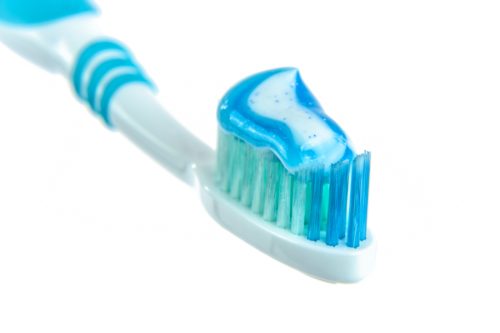
Lots of people know the feeling. You have a bowl of delicious ice cream on your lap and you’re ready to dig in, though every time you do, you experience a strange, semi-painful sensation in your teeth and gums. This is a fairly common condition, technically termed “dental hypersensitivity.” However, this sensation may also occur when eating hot foods, or sweet foods, as well. Sensitive teeth can prevent us from eating and drinking what we love, and sometimes may even lead to, or indicate, an underlying issue, like a cavity. If you deal with sensitive teeth regularly and are looking to improve your overall dental health and oral comfortability, here are some of the questions you may have:
Why are my teeth so sensitive?
To determine the cause of your sensitive teeth, you must first see a dentist so he or she can check for cavities, gum disease, or any other underlying issue. If a dentist confirms you do not have a cavity or otherwise, there is a good chance you have dental hypersensitivity. This is why if you have sensitive teeth, you must contact our office to schedule an appointment as soon as possible.
One of the primary reasons people have sensitive teeth is a loss of enamel. As the enamel erodes, dentin is exposed. Dentin is not a heavily-guarded part of the tooth, and therefore leaves your inner nerves exposed. Many people lose tooth enamel from conditions such as acid reflux, bruxism (clenching or grinding teeth), or even a chipped tooth.
People may also have sensitive teeth from a loss of gum tissue. When you erode your gums, you expose your tooth roots, causing them to lack the protection from hot or cold temperatures that they need to function properly. Several factors contribute to gum recession, including, though not limited to: bad teeth positioning, chewing tobacco, untreated gum disease, teeth grinding or clenching, and improper brushing technique.
Are there home remedies for sensitive teeth?
Fortunately, there are some things you can do to ease the pain. They are as follows:
- Rinse with salt water: Salt is an antiseptic, which means it is a substance that stops or slows down the growth of microorganisms. Gargling with salt water is proven to help reduce the pain felt from sensitive teeth. You can make a saltwater rinse at home easily, by simply adding ½ to ¾ of a teaspoon of salt to a glass of lukewarm water, mix well, and swish the solution in your mouth for 30 seconds.
- Honey and warm water: Honey is great for more than its taste. Honey, an antibacterial agent, can be swished with warm water to promote oral healing. Just use one teaspoon at a time.
- Vanilla Extract: Simply pour a bit of vanilla extract onto a cotton ball and gently apply it to your gums for no more than five minutes. You can repeat this process as often as you’d like.
- Turmeric: Turmeric is well-known for its anti-inflammatory effects. Simply gently rub ground turmeric on your teeth for potential pain relief. You may also may a topical paste with one teaspoon of turmeric, ½ teaspoon of salt, and ½ teaspoon of mustard oil. You can then apply the paste to your teeth and gums up to twice a day.
- Sensodyne: Sensodyne toothpaste contains potassium nitrate and either sodium fluoride or stannous fluoride. Potassium nitrate penetrates the microscopic pores in dentin and soothes the nerves in your teeth. Fluoride compounds, on the other hand, fight sensitivity by plugging dentin pores, protecting your teeth’s inner nerves.
Dental Associates of Basking Ridge is a compassionate, gentle, and professional state-of-the-art dental practice serving Basking Ridge, Morris & Somerset County. Our office is always ready to greet our patients with a smile, take the time to answer any questions, and provide the quality dental services our patients expect. Please contact us to schedule an appointment. We look forward to serving you!






